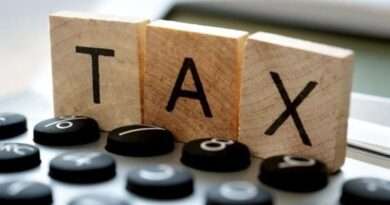Economic Roadmap for 2025
|
Getting your Trinity Audio player ready...
|
Overview of Pakistan’s Economic Progress in 2024
Key Economic Indicators
Pakistan’s economy experienced several positive trends in 2024. Notably, the country’s default risk decreased by 93%, the current account balance reached a 10-year high, and November’s inflation rate of 4.9% marked the lowest level since May 2018. These developments signaled a significant improvement in the country’s economic stability.
Monetary Policy and Stock Market Performance
The State Bank of Pakistan cut its key policy rate by 900 basis points to 13% in 2024, bringing borrowing costs to their lowest level since April 2022. This move aimed to stimulate economic activity by making credit more affordable. Additionally, Pakistan’s stock market emerged as one of the best performers globally, boosting investor confidence to its highest level in three years.
Persistent Economic Challenges
Poverty and GDP Growth
Despite these achievements, significant challenges remain. Poverty rates are alarmingly high, exceeding 40%. The GDP growth rate of 2.5% is the lowest in the South Asian region, where the average is 6.4%. Furthermore, the GDP per capita, estimated at $1,587, is significantly below the South Asian average of $2,303 and has not yet recovered to its 2018 level of $1,684.
Need for Sustainable Growth
While economic stabilization has been achieved, the focus must now shift to sustainable growth and poverty reduction. The current government, which assumed power in March 2024, initially showed a strong commitment to implementing serious economic reforms to catch up with the region.
The Reform Agenda and Its Implementation
Comprehensive Sectoral Reform Plan
The government established task forces comprising leading local and international experts, assigning them tight deadlines to deliver their recommendations. Within a few months, the government successfully finalized a comprehensive sectoral reform plan covering all economic ministries. This plan was scheduled to be unveiled by the prime minister on August 14, 2024. However, its implementation has inexplicably stalled.
Tax and Tariff Reforms
Among the thoroughly debated reforms were proposals to restructure the Federal Board of Revenue (FBR), which had not undergone significant reform in nearly a century. The proposed changes aimed to modernize the FBR through three key measures: separating tax collection from fiscal policy, splitting customs and indirect taxes into independent entities, and establishing oversight boards to monitor performance. Unfortunately, this plan now appears to have been shelved.
The Importance of Tax Policy Reform
Tax and tariff policy reforms were deemed essential by both multilateral organizations and major business groups. An independent team of leading economists and tax experts developed comprehensive proposals to support the government. However, these recommendations were disregarded in favor of additional regressive tax measures. These policies have not only stifled growth but have also led to lower tax collections, falling short of the FBR’s six-month target by approximately Rs400 billion.
Privatisation Efforts and State-Owned Enterprises
Challenges in Privatisation
The government has also struggled to advance the interim government’s ambitious plans for privatizing loss-making state-owned enterprises (SOEs). The mismanagement of Pakistan International Airlines (PIA) privatization efforts exemplifies this failure. Similarly, no progress has been made towards the privatization of Pakistan Steel Mills, which has been closed for a decade and has accrued losses exceeding Rs600 billion. By the end of this fiscal year, annual SOE losses are projected to surpass Rs1,000 billion.
Strategic Focus for 2025
Window for Bold Reforms
Governments typically have a narrow window—usually the first two years of their term—to implement bold and transformative reforms. As elections draw closer, priorities tend to shift towards short-term political gains and populist measures, leaving little room for substantial, long-term initiatives. To capitalize on this critical period, the government must break free from the “paralysis by analysis” mindset and decisively advance its reform agenda before this window of opportunity closes.
Implementation of Sectoral Reforms
As we move into 2025, the implementation of the sectoral reforms already finalized must be the government’s top priority. At the very least, reforms related to tax and tariff policies, modernizing the outdated FBR, and privatizing loss-making state-owned enterprises—debated extensively during the government’s first six months—must now move decisively towards implementation.
Equitable and Sustainable Economic Progress
These measures are not just desirable; they are critical to fostering equitable and sustainable economic progress. 2024 brought prosperity to wealthier segments, particularly stock market investors, but offered minimal relief to the poorer majority. Although a decline in the inflation rate provided some respite, regressive tax policies further exacerbated poverty levels.
Conclusion
In conclusion, while Pakistan’s economy made significant strides in 2024, many challenges remain unaddressed. The government’s focus in 2025 should be on implementing the comprehensive sectoral reforms that have already been finalized. By prioritizing tax and tariff policy reforms, modernizing the FBR, and privatizing loss-making SOEs, the government can lay the foundation for sustainable and equitable economic growth.
FAQs
1. What were the key economic achievements of Pakistan in 2024?
- Pakistan’s economy saw a decrease in default risk by 93%, a 10-year high current account balance, and the lowest inflation rate since May 2018 at 4.9%.
2. What are the major challenges facing Pakistan’s economy?
- Major challenges include high poverty rates over 40%, a low GDP growth rate of 2.5%, and a GDP per capita significantly below the South Asian average.
3. What reforms were proposed for the Federal Board of Revenue (FBR)?
- Proposed reforms included separating tax collection from fiscal policy, splitting customs and indirect taxes into independent entities, and establishing oversight boards to monitor performance.
4. Why is the implementation of sectoral reforms crucial for Pakistan in 2025?
- Implementing sectoral reforms is crucial to foster sustainable and equitable economic growth, modernize the tax system, and privatize loss-making state-owned enterprises.
5. What steps should the government take to ensure economic progress in 2025?
- The government should prioritize the implementation of tax and tariff policy reforms, modernize the FBR, and advance the privatization of loss-making SOEs.
ALSO READ




